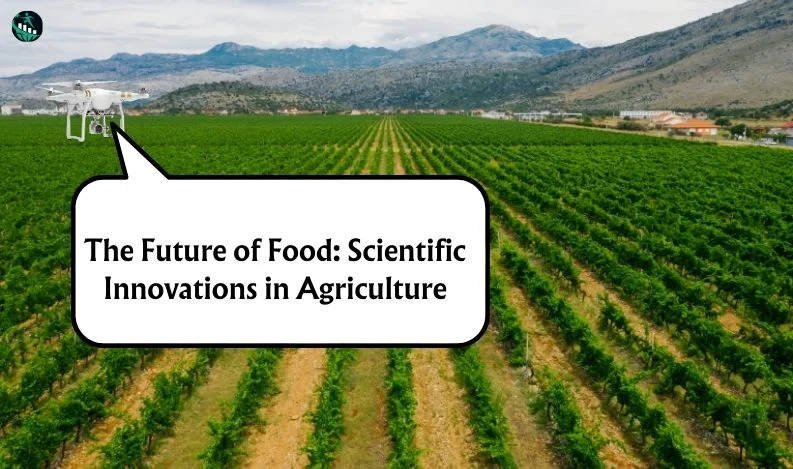
The Future of Food: Scientific Innovations in Agriculture
The intersection of science and agriculture is ushering in a new era for food production, one that promises to address some of the most pressing challenges of our time. As the global population continues to grow, expected to reach nearly 10 billion by 2050, the demand for food will inevitably rise, placing unprecedented stress on our agricultural systems. However, scientific innovations are paving the way for a revolution in how we grow, process, and distribute food, ensuring sustainability, enhancing nutritional value, and increasing crop yields. This blog delves into the cutting-edge advancements shaping the future of food and agriculture.
Precision Agriculture: Farming with Data
One of the most transformative innovations in modern farming is precision agriculture, a data-driven approach that optimizes crop health and productivity. Utilizing IoT (Internet of Things) devices, drones, and satellite imagery, farmers can now monitor crop conditions in real time, applying water, fertilizers, and pesticides only where needed. This targeted approach not only boosts crop yields but also minimizes waste and environmental impact, heralding a future where farming is both more efficient and eco-friendly.
CRISPR: The Genetic Editor
CRISPR-Cas9 technology, often referred to simply as CRISPR, has emerged as a game-changer in agricultural biotechnology. This gene-editing tool allows scientists to precisely alter DNA sequences in plants, making crops more resistant to pests and diseases, enhancing their nutritional profiles, and enabling them to withstand extreme weather conditions. The potential of CRISPR to improve food security and reduce reliance on chemical pesticides is immense, offering a glimpse into a future where genetic editing plays a pivotal role in sustainable agriculture.
Vertical Farming: The Skyward Farms
Vertical farming is redefining the concept of farming, with crops grown in stacked layers in controlled environments, often within urban settings. This innovative approach utilizes hydroponics and aeroponics, requiring significantly less water than traditional agriculture and no soil at all. By bringing farms closer to consumers, vertical farming reduces transportation costs and carbon emissions, ensuring fresh produce is more accessible while promoting urban food sustainability.
Lab-Grown Meat: A New Kind of Agriculture
The cultivation of lab-grown meat, also known as cultured or cell-based meat, presents a radical alternative to conventional livestock farming, which is a major source of greenhouse gas emissions and environmental degradation. Through cellular agriculture, meat is grown from animal cells in bioreactors, offering a cruelty-free, environmentally friendly alternative to traditional meat production. While still in its infancy, lab-grown meat has the potential to revolutionize the food industry, reducing our ecological footprint and addressing ethical concerns about animal welfare.
AI and Machine Learning: Smart Farming Solutions
Artificial intelligence (AI) and machine learning are playing increasingly significant roles in agriculture, offering solutions that range from pest detection and crop disease identification to yield prediction and soil health monitoring. By analyzing vast datasets, AI algorithms can provide actionable insights for farmers, optimizing every aspect of the farming process. This not only enhances productivity but also supports sustainable practices, marking a shift towards smarter, more responsive agricultural systems.
Climate-Resilient Crops: Feeding the Future
Amid growing concerns over climate change and its impact on agriculture, the development of climate-resilient crops has become a priority. Scientists are working on breeding and genetically modifying plants to endure drought, salinity, and extreme temperatures, ensuring food production can withstand the challenges posed by a changing climate. These advancements are crucial for safeguarding food security in vulnerable regions and adapting our agricultural practices to the realities of a warming world.
Conclusion: A Sustainable, Nutritious Future
The future of food is being shaped by scientific innovations that promise not only to meet the growing demand for food but to do so in a manner that is sustainable, nutritious, and equitable. From precision agriculture and vertical farming to CRISPR and lab-grown meat, these advancements are transforming our food systems, offering hope in the face of environmental challenges and population growth. As we continue to explore the potential of these technologies, collaboration between scientists, farmers, policymakers, and consumers will be key to realizing a future where food is plentiful, accessible, and in harmony with the planet.
Also Read:-



Recent Comments:
No comments yet.